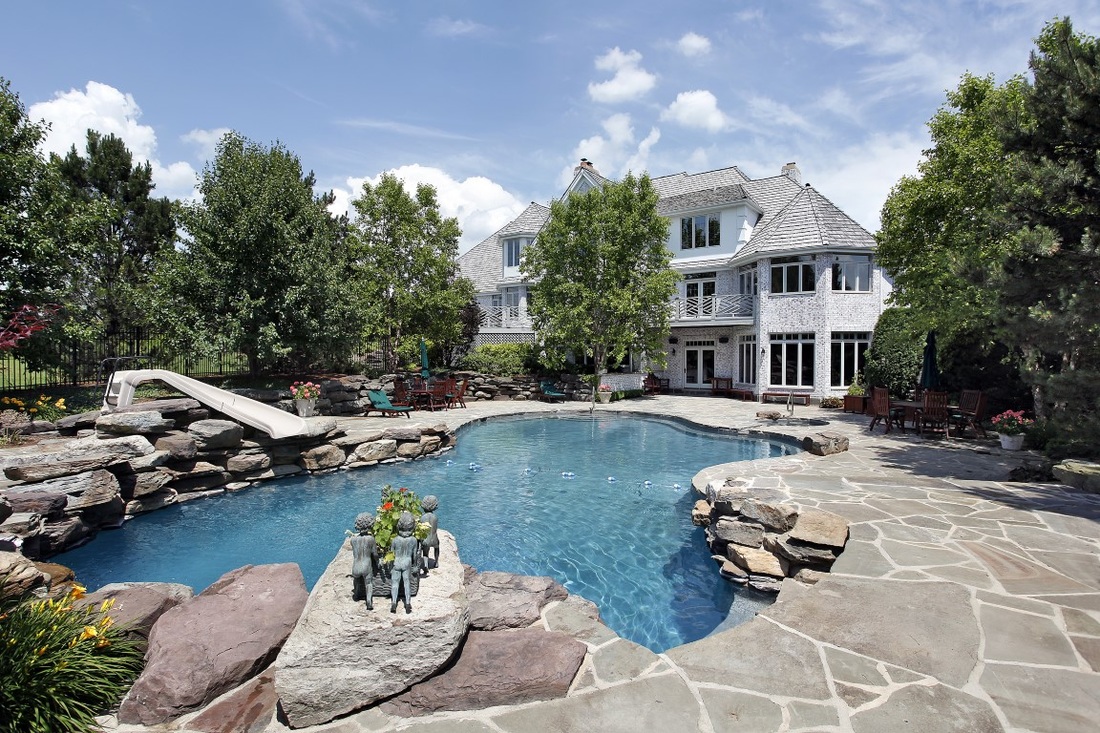|
We’ve come a long way since the “Beverly Hillbillies” referred to their swimming pool as the “cement pond.” Many materials have been used in constructing swimming pools with varying degrees of success.
Swimming pool construction materials have included: concrete, fiberglass, metal, plastic, tile, or vinyl. Concrete Advantages · Concrete pools can be custom designed in shape, size, and depth. · You can build a concrete pool anywhere you want. · Concrete construction lets you build a waterfall anywhere in the pool you want it. · You can mix concrete with other construction materials such as tile. · Concrete is one of the longest lasting man –made construction materials. If it is installed properly, concrete will last for decades unlike other construction materials with a shorter life expectancy. · You can stamp concrete to get some interesting visual and tactile variations. · With the right tools, materials, and skill installing a concrete pool can be done very quickly. One of the newest and most natural materials being used in swimming pool construction today is natural stone. Why Use Stone? Stone swimming pools are attractive. While more labor intensive, stone pools require fewer specialized tools and fewer construction materials than concrete. If you are trying to create a natural pool look by adding such features as a grotto or a waterfall, stone lends itself well to this landscaping. Stone swimming pools are more than attractive, though. They look and feel luxurious. Stone can be incorporated into both construction and landscaping. Stone is durable and stands up well in all kinds of weather. Stone pool coping gives the water a more natural look. Stone allows for some variations in both design and cost. For example: You can decorate around your stone pool with natural or faux stone. Stone is available in many shapes, sizes, and varieties. You can use tiles, rocks, or boulders, allowing countless designs and elements. Stone construction allows for customization of shape and design. Your stone pool can easily become the focal point of your entire yard. This can cut back on landscaping design and maintenance costs. Concrete pools can crack in weather extremes. Stone does not crack or heave. Stone is not as subject to erosion as concrete. Conclusion While you need specialized skills to work with stone, it is more environmentally friendly. The natural stone swimming pool finished product is longer lasting and more aesthetically pleasing.
4 Comments
11/25/2022 06:51:43 am
I visited my sister's house last week, and we talked about her next renovation project and that she wants to add a swimming pool to her backyard too. I liked that you described stone and concrete pools and how each material has its own advantages, and I think this will be helpful for my sister's next month's project. Thank you for the information on how stone pools create a natural and attractive look for your home.
Reply
1/21/2023 02:22:11 am
Natural stone is not suitable for swimming pools at all. So, it only makes a little sense in that particular sense. I would much rather go for something else entirely.
Reply
3/5/2023 09:32:27 pm
Really appreciated blog, that you have presented all the information on Natural Stone for Swimming Pools, I love all the information shared. It will be very helpful to understand about the topic. Great post to share, thanks for publishing this here!!
Reply
Leave a Reply. |
More articles:
August 2018
Categories |
|
Contact Kirsten to get started today.
(310) 756-3524 [email protected] #DRE 01450452 Ask her about her newsletter to get current South Bay Market information and real estate news right to your inbox... no spammy ones, promise! |
|
Copyright © 2021 Kirsten Cole. All rights reserved.



 RSS Feed
RSS Feed
